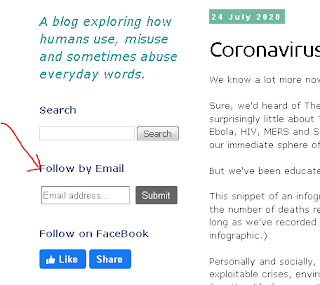By Mike Lundy
We
are living in uncertain times.
Many
of us feel very unsettled, even in the
relative safety of Australia. When we are not searching out the latest pandemic news, we are flooding social media with our struggle to find
focus or positivity, or we are comforting ourselves
with nostalgia on travel, books and music, getting into gardening and busy
work.
I
sure feel a greater sense of uncertainty than I did this time last year.
The words: 'these uncertain times' are everywhere - news stories,
ministerial announcements, articles on physical and mental health, reports, and
advertisements for everything from cleaning products to insurance to dating
apps. Some go so far as to call our times 'an era of uncertainty'. (Here's an
Australian example from 2018.) An American report published in 2004, told us
to expect that 2020 would be
characterised by a 'pervasive sense of insecurity' related to concerns over job security, fears around migration, terrorism and internal conflicts, and military conflicts
.
No
prediction of a global pandemic though, the latest source of the ubiquitous
statement that we are 'living in uncertain times'.
 But
are 'these times' truly more uncertain than other times?
But
are 'these times' truly more uncertain than other times?
Interestingly, Oliver
Burkeman says that every era
describes itself as characterised by unprecedented uncertainties and lack of
stability.
Just a few of his examples:
In 1951, Alan Watt highlighted a
contemporary 'feeling that we live in a time of unusual insecurity'… referring
to the impact of the breakdown of long-established family, social,
economic and belief traditions.
Writing about the Roman Republic and Empire over three centuries is replete with political instability
and social unrest and the impact on
people who felt their future was disturbingly uncertain.
The idea that earlier times were more certain and
stable than our own experience of life is really nostalgia, based on an imagined and idealised past.
In fact, when you're fully engrossed in living your
own life, you face uncertainty all the time.
Because life is irrevocably, constantly and most certainly uncertain.
The
global pandemic reveals a fundamental truth: we humans are deeply deluded that we are fully in control of
ourselves, our future, our world. We desperately want to believe we can make our lives certain, set and fixed.



































